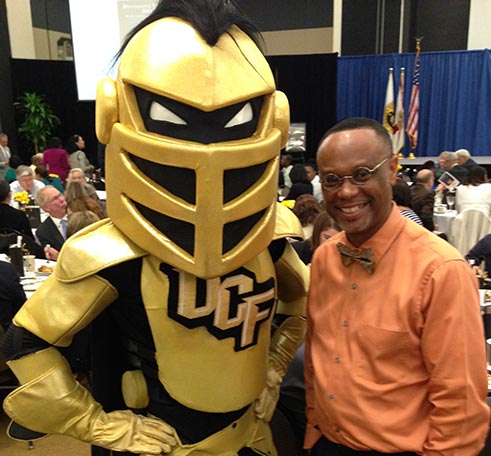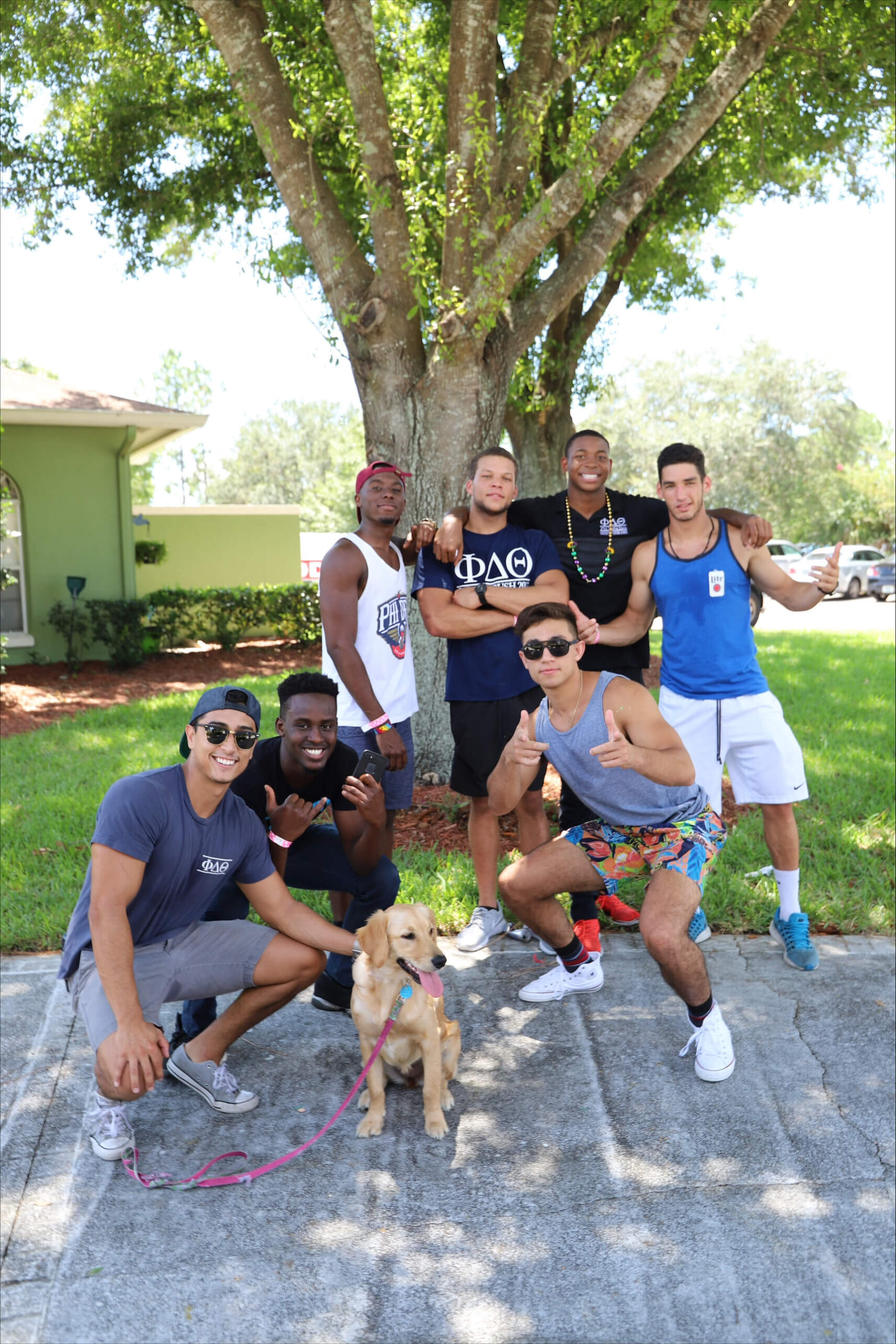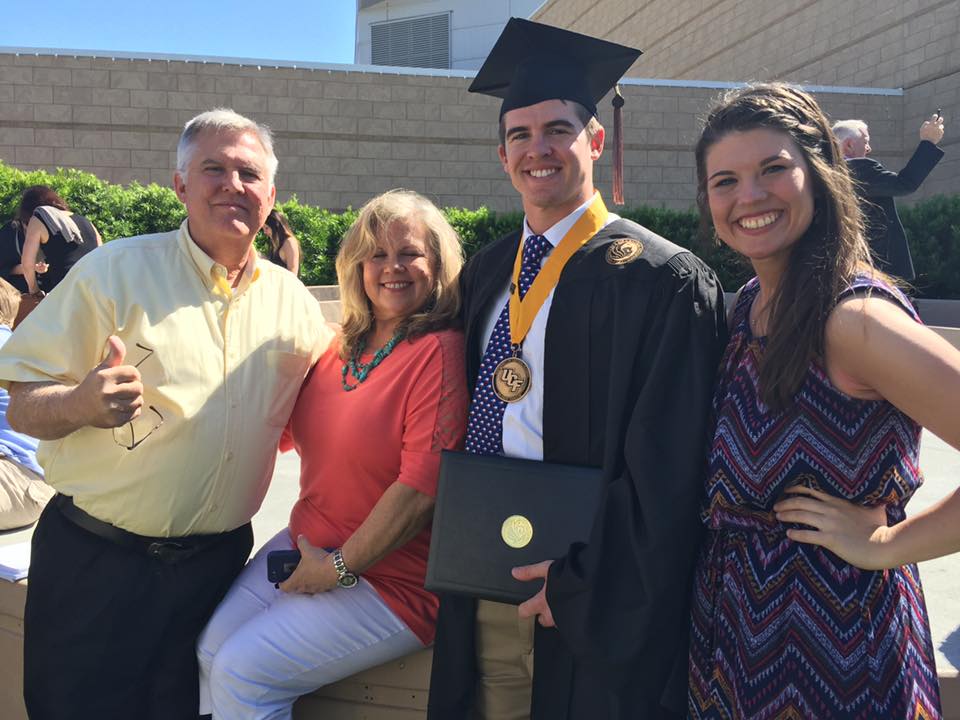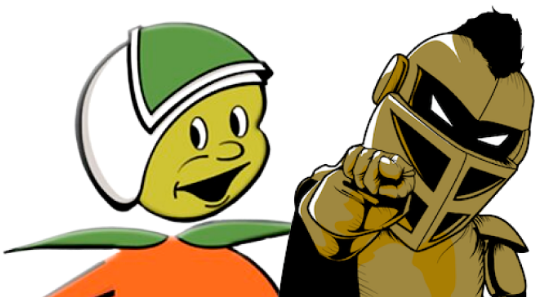Teaching the Science of Communication
UCF associate professor is putting his major to good use, educating the next generation of speech-language pathologists
Kenyatta Rivers, ’88, ’90, Ph.D. | Associate Professor/ASHA Fellow
Department of Communication Sciences and Disorders
UCF College of Health and Public Affairs
By Angie Lewis, ’03
Majoring in speech-language pathology as a UCF student, Kenyatta Rivers, ’88, ’90, Ph.D., has brought his education full circle, as he’s now an associate professor in the College of Health and Public Affairs.
The department may have changed names since he graduated — from communicative disorders to communication sciences and disorders — but its mission has remained the same: “to empower our students to achieve their greatest potential as clinicians, scientists, scholars, and professionals. By providing the foundations of our discipline and through the use of innovative technology, we enable our graduates to be leaders who positively impact individuals and their communities.”
As a professor, Rivers plays a vital role in educating the department’s students so that they can one day follow in his footsteps, helping children, adolescents and adults acquire effective speech, language and communication skills.
He thoroughly enjoys passing on his knowledge and experience to his students. He says his favorite course to teach is Language/Literacy Disorders and Differences in Children and Adolescents, because it allows him to provide master’s degree students with a working knowledge of language disorders in preschool and school-aged populations, which will enable them to serve as productive collaborators in delivering appropriate services in a variety of settings.
While Rivers spends much of his time teaching the next generation of speech-language pathologists, he also makes time for countless research projects, numerous philanthropic organizations, and UCF football games with fellow Knights.
Communicating Q&A
Q. What has surprised you most about being in your profession?
A. How much students and others look to you for guidance in all areas of their lives
Q. Besides your office essentials (e.g., laptop, etc.), what’s one thing you always bring with you to work?
A. Professional and popular magazine articles
Q. If you could teach a college course in any other department, what would it be?
A. Death and dying from a multicultural perspective
Q. Advice for someone who wants to do what you do?
A. Know your profession, develop a high level of competence in an areas(s) that you’re interested in, and then let the real you shine
Q. How do you decompress?
A. Attend and participate in a variety of community events, along with visit the elderly, attend rodeos, monster truck shows, and drag racing shows
Q. What’s the biggest misconception about you?
A. I don’t take lunch breaks.
Q. What’s one thing you’ve done that will go down in history?
A. My work on the development of pragmatic language skills in African-American children and adolescents.
Q. What/who always makes you laugh out loud?
A. My students
Q. Favorite food?
A. Chocolate cake
Q. If you had to choose another career, what would it be?
A. Possibly hospitality management, nursing, occupational therapy or biology, with an emphasis on marine life
Q. If you had to wear one item of clothing for the rest of your life, what would it be?
A. A bow tie
Q. If you could socialize with anyone for a day, who would you choose?
A. Meet Michael Jackson or Prince to better understand their creativeness



